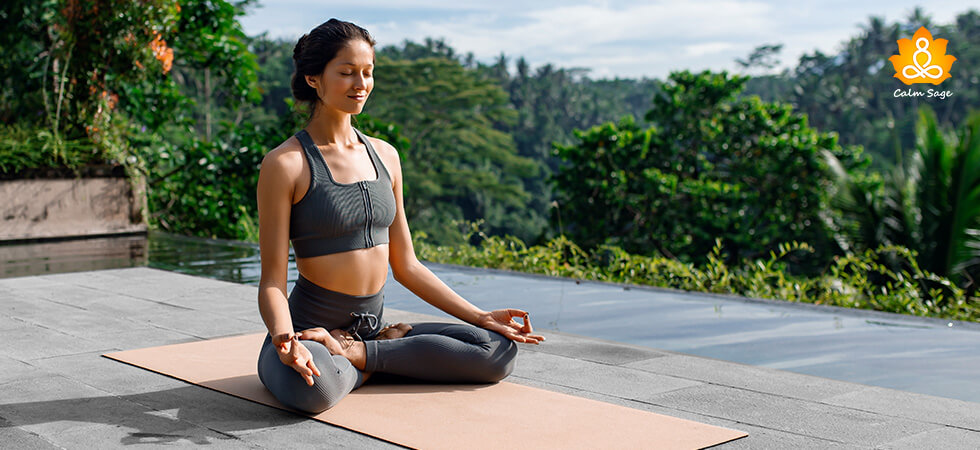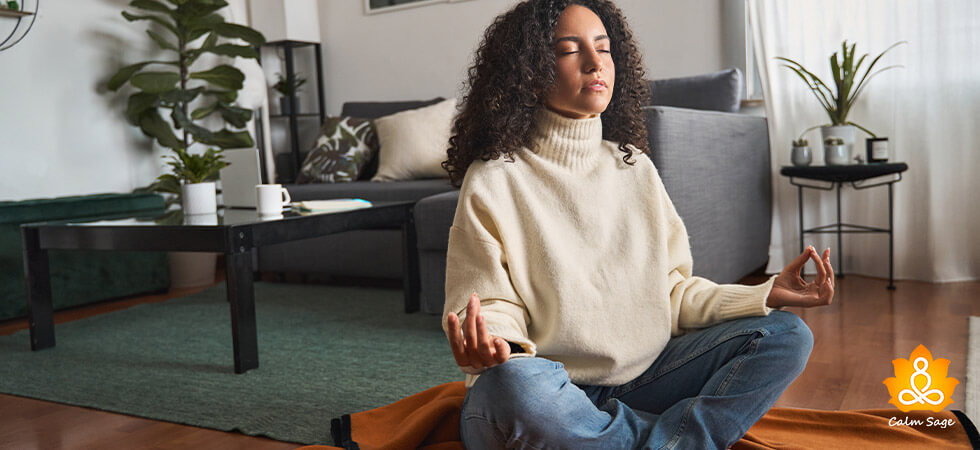Coherent Breathing Technique: Benefits, Effects, How To Get Started

List of Contents
Controlling your breathing sounds like too much work, doesn’t it? Do you believe when I say that the only ones who can (and should) control their breathing should be meditation pros?
Well, what about when I say that you can also learn to control your breathing!?
Coherent breathing technique is another breathing method that can help you relieve stress and lower anxiety just by taking slow and controlled breaths that synchronize with your heartbeat.
When we are too stressed, our breathing falters and our muscles tighten. This tension in our muscles can make our heart beat faster which only increases our anxiety. With coherent breathing, you can learn to control the rhythm of your heartbeat, slow it down with deep breaths, and reduce stress.
Let’s take a look at what coherent breathing is, its amazing benefits, the effects, and how to practice this breathing technique!
What Is Coherent Breathing?
Every day we breathe without paying attention to our breathing pattern and while breathing is an unconscious act, with practice we can learn to breathe consciously. That’s what the coherent breathing technique focuses on!
By controlling your breathing, you can bring positive changes to your body and mind. Coherent breathing involves adjusting the time you spend inhaling and exhaling.
Naturally, our breathing rate (inhale and exhale) is two to three seconds. With coherent breathing, the aim is to increase the length of your inhales and exhales to six seconds.
This kind of breathing exercise is mostly used while practicing yoga and meditation. However, you can practice coherent breathing without practicing yoga, step-by-step instructions, or an instructor.
Also Read: Meditation v/s Breathwork: What’s The Difference?
How Does Coherent Breathing Work?
Well, breathing is one of the elements of our autonomic nervous system that also includes heart rate, digestive system, blood pressure, respiration, and more.
The vagus nerve, the nerve responsible for the regulation of internal organ functions, sends signals from the brain to the gut to regulate the parasympathetic nervous and sympathetic nervous system – the two branches of the autonomic nervous system.
In simple words, the vagus nerve is responsible for slowing your heart rate, controlling your blood pressure, and more. Ergo, the best way for your vagus nerve to take action is to control your breathing.
Enter: coherent breathing or controlled breathing!
When you learn how to coherently breathe, you may notice positive changes in both your body and your mind.
The Benefits Of Coherent Breathing
Practicing regular coherent breathing can help:
-
- Reduce pain
- Increase energy
- Improve sleep
- Reduce blood pressure
-
- Reduce symptoms of depression
- Reduce symptoms of anxiety
- Increase performance
- Better emotional regulation
- Increase resilience
- Lower stress
- Improve decision making
While there’s still a lot of research to be done, there are some studies that have proven the effectiveness of coherent breathing. Not only does this 6-second breathing have the above-listed benefits, but it can also help improve immune system response, increase alertness, help cope with post-traumatic stress disorder, and ADHD.
In a study, it was found that after practicing coherent breathing, the levels of GABA (gamma-aminobutyric acid), the neurotransmitter that helps reduce anxiety, increased. In another study, it was found that cytokines, the proteins linked to stress and inflammation, were reduced after coherent breathing.
How To Get Started?
If you’d like to practice the coherent breathing technique, follow these steps:
Step 1: Focus on your natural breathing and count the time of your inhale and exhale.
Step 2: Sit in a comfortable position to practice the coherent breathing technique. Gently place one hand on your stomach.
Step 3: Inhale for four seconds and then exhale for four seconds. Repeat this for one minute.
Step 4: Repeat the above step but lengthen your inhales and exhale for five seconds.
Step 5: Repeat the above step but extend the breaths to six seconds.
During this breathing exercise, keep your hand on your stomach. Using diaphragmatic breathing can help you feel your breaths. If you find your mind wandering, don’t worry. Just bring your focus to your breathing again. Counting with the inhale and exhale can help ground you.
Also Read: Practicing The 3-6-5 Meditative Breathing Method For Better Sleep
Tips For Beginners
If you feel uncomfortable taking long breaths, feel free to shorten the time of your breathing. Many people feel comfortable enough to go 10 seconds but you don’t have to. Take as long as you want but try to aim for 6-seconds, at least.
You can practice this technique for five minutes daily and slowly work your way to more. If you feel comfortable practicing in bed, go for it. The best part of this breathing technique is that you can practice it anywhere, anytime!
Note: Do not force the breath on your inhales, let the breathing be as natural as it can be. Go slow and slowly you’ll get used to conscious breathing.
You can practice heart coherence breathing on your own or you can practice this breathing technique with yoga too. You can learn how to practice coherent breathing in breathing workshops and with apps if you’re having trouble learning.
You can also combine coherent breathing with other breathing techniques such as Belly breathing or energized breathing.
Coherent breathing is a simple yet effective breathing technique that can help you not only reduce stress and anxiety but can also help improve mood, regulate emotions, and other problems as well.
You can always consult a trained professional if you’re struggling with practicing coherent breathing and if your symptoms of anxiety and stress continue.
You can also write to us at info@calmsage.com or DM us on social media for assistance. I hope this article on coherent breathing and how to practice the coherent breathing technique help you control your heart rate in times of need.
Did you try coherent breathing? Found it helpful? Let us know in the comments below!
Take Care!






















